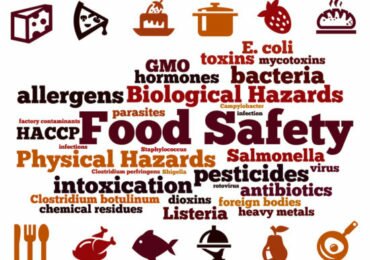
Today, the FDA doubled-down on its imperfect 2005 and 2017 decisions to enable the risky chemical perchlorate to be added to dry food packaging. The FDA denied a request for apublic hearing submitted by the Center for Food Safety, Breast Cancer Prevention Partners, and other advocacy gatherings.
The food safety and cancer groups were joined by the Environmental Defense Fund, Natural Resources Defense Council, Center for Environmental Health, Center for Science in the Public Interest, Clean Water Action, Environmental Working Group, and Improving Kids’ Environment in looking for the public hearing to challenge the agency’s conclusions.
The gatherings’ solicitation had exhibited both that the office horribly disparaged the amount of perchlorate that gets into food from packaging and overlooked its very own investigations demonstrating youthful youngsters’ presentation to the neurotoxin increased after its 2005 decision to allow the chemical’s use in food packaging. By taking right around two years to reaffirm its excessively limited perusing of the law, the office avoided responsibility for its defective science and is enabling presentation to perchlorate – a concoction that hurts fetal and infant brain development – to continue.
Perchlorate is a known endocrine disruptor that debilitates the thyroid’s capacity to utilize iodine in the eating regimen to make a hormone essential to brain development. For the assessed 20% of pregnant women who are as of now iodine-inadequate, any introduction to perchlorate can represent a hazard to a child’s healthy development.
“It is outrageous that FDA took almost two years to simply reaffirm its flawed interpretation of the law. The agency originally agreed that a 2014 petition to ban perchlorate was properly filed and asked for public comments. FDA then changed its view of the law in its May 2017 denial of the petition,” said Tom Neltner, Chemicals Policy Director at Environmental Defense Fund. “By denying our challenge today, FDA is avoiding an opportunity to protect kids from the irreversible harm posed by perchlorate exposure.”
Erik D. Olson, Senior Director for Health and Food at the Natural Resources Defense Council, said “pregnant moms shouldn’t have to worry when they sit down for a meal that they may be threatening the health of their babies with a toxic chemical in their food. FDA is falling down on the job. The agency should be protecting kids’ developing brains from the dangers posed by hazardous perchlorate in our food.”
“FDA’s decision to continue allowing this neurotoxic chemical in dry food packaging is a big mistake – babies bear the brunt of the risk and impact,” said Jane Houlihan, Research Director for Healthy Babies Bright Futures. “With FDA’s failure to protect children, it falls on perchlorate maker BASF to do the right thing and withdraw this unnecessary chemical from the food packaging market.”
“FDA’s actions show its callous disregard for the risks perchlorate poses to pregnant women, infants and children, and put process ahead of its mission to keep food safe,” said Lisa Lefferts, Senior Scientist at Center for Science in the Public Interest.
“Perchlorate—an ingredient in rocket fuel—harms fetal and infant brain development. It should never be used in food packaging, let alone food packaging for kids products,” said Scott Faber, Vice President for Government Affairs at Environmental Working Group, “It’s unacceptable that FDA is allowing this hazardous substance to continue to be used and won’t even allow a hearing on the science.”
“The development of the brain is like a one-way street; there is no U-turn to go back and fix the problems perchlorate exposure may have caused,” said Dr. Maricel Maffini. “It is absolutely unnecessary to use this well-known endocrine disrupting chemical in contact with food.”
FDA endorsed perchlorate for use in plastic packaging for food in 2005 – regardless of proof that it hurts fetal and infant brain development. In May 2017, the office dismissed a request to boycott the compound as a food additive – in a choice that EDF has appeared on defective science. Supporters reacted by testing the move and mentioning a formal evidentiary public hearing in June 2017.
A FDA report published in 2016 found that virtually all foods sampled had detectable levels of perchlorate. Much all the more concerning – FDA’s own studies show expanded dimensions of perchlorate in foods, for example, infant food dry grain, demonstrating the compound’s deliberate use in dry food packaging is the possible wellspring of expanded introduction for youthful kids. Dry rice cereal—often the first solid food given to a baby—and barley cereal showed the greatest increase from before and after the decision.
The June 2017 complaint refered to the organization’s refusal to recognize proof that perchlorate introduction expanded altogether after its 2005 choice to permit perchlorate in packaging. Moreover, the gatherings refered to confirm that FDA’s underlying choice to support perchlorate terribly disparaged the measure of perchlorate relocating into dry nourishment. By denying those objections today, FDA is once again ignoring these critical details. We will consider our legal options to challenge this decision in the courts.
Jonathan Keen is an award winning Freelance writer, and a journalist, with a passion for creating news about national and international issues. Keen has worked imitational with marketing. He works seasonally on curiousdesk website and is also regular contributor.




